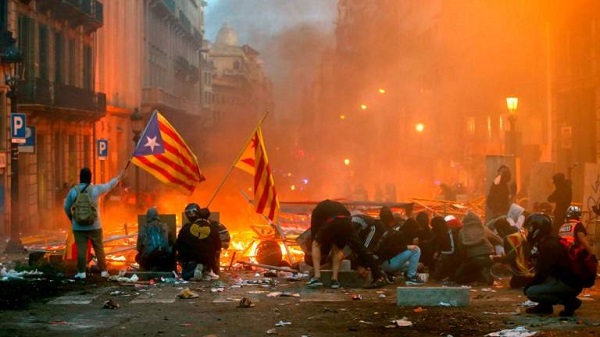A30 Team Statement
Despite the modern preference for treating a country’s internal problems as mere conflicts between legitimate political forces, or as issues in the field of security rather than defense, it is clear that such problems are often the most serious that a society can face.
History teaches that no great civilization has fallen without first decomposing from within, that the enemies who do the most harm are those who operate behind their own lines, and that the historical continuity of a political community can be compromised by internal convulsions to an equal or greater extent than by disputes with external enemies, which is ultimately what the defense strategy seeks.
For all these reasons, it is absurd to disassociate security from defense, to devote resources to defense if one is not prepared to combat the political currents that progressively dissolve what is intended to be protected by them or to pretend that those of us who deal with defense – whether serving in the Armed Forces or “fueling” the debate – should remove ourselves from the processes that, from within, threaten to destroy that which constitutes the object of our work.
What is happening in Catalonia these days is very serious and, in combination with the social and political crisis of the system built since 1975, is undoubtedly the main and most immediate danger facing Spain. The riots that have taken place in Barcelona and other Catalan cities are not a reaction to an unjust sentence, but perfectly organized and planned events that have been going on for months, which are part of a long-term destabilization strategy aimed at forcing the Spanish government to accept the possibility of secession. They would also have occurred if the convictions had been half or twice as harsh.
This is not just a problem of public order. It is evident that in all processes of a revolutionary or insurrectionary nature, disturbances of public order occur. Although, as their causes and ends are political, it is a mistake to combat them without at the same time taking the political decisions that will make impossible for the secessionism to triumph. Neither the French Revolution could have been considered a problem of public order nor the uproar after a football match is considered a revolt.
Arresting the most violent elements and, moreover, charging them with crimes that do not take into account the political purpose of their actions (vandalism, resistance to authority…), is to treat the symptoms with medicines that favor the progression of the disease, because the insurrectionary movement will not fail to present them as martyrs of the struggle and will reinforce their capacity for emotional attraction.
The situation cannot be expected to resolve itself. On one hand, the leaders of the process need to keep it alive in order to survive politically and even to avoid having to face criminal charges. On the other hand, those who have joined the insurrection are already victims of the emotional conviction that they are leading the fight for a great cause to which any other issue must give way. It is therefore unlikely that those who lead the insurrection or those who participate in it will put an end to it.
It should also be noted that keeping a revolution alive is similar to keeping a bicycle running, because it requires advancing, that is: deepening the dynamics of rupture. For this reason, the initial leaders of revolts are often overwhelmed by them and give their place to more radical characters and, for this reason too, it cannot be ruled out that the most committed activists end up resorting to terrorism if they observe that the advances they expect do not occur quickly enough.
Taking what was mentioned into account, it is necessary to demand that the Spanish Government and all the political forces assume the reality that they have had to live through and take the necessary political decisions to guarantee territorial integrity and public order in Spain, as well as to guarantee the rights of the millions of Spaniards who live in Catalonia and who are being completely abandoned by the institutions- especially bearing in mind that to a large extent it is the result of their actions and omissions over the last four decades. If this is not done, it is clear that the institutional legitimacy and the Spaniards confidence in them will be irretrievably compromised.


